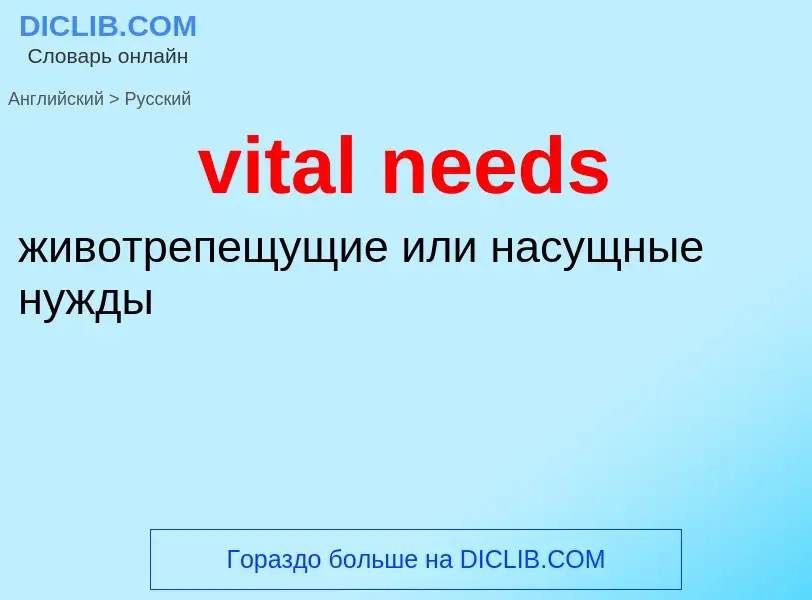Traducción y análisis de palabras por inteligencia artificial ChatGPT
En esta página puede obtener un análisis detallado de una palabra o frase, producido utilizando la mejor tecnología de inteligencia artificial hasta la fecha:
- cómo se usa la palabra
- frecuencia de uso
- se utiliza con más frecuencia en el habla oral o escrita
- opciones de traducción
- ejemplos de uso (varias frases con traducción)
- etimología
vital needs - traducción al ruso
Wikipedia
The basic needs approach is one of the major approaches to the measurement of absolute poverty in developing countries globally. It works to define the absolute minimum resources necessary for long-term physical well-being, usually in terms of consumption goods. The poverty line is then defined as the amount of income required to satisfy the needs of the people. The "basic needs" approach was introduced by the International Labour Organization's World Employment Conference in 1976. "Perhaps the high point of the WEP was the World Employment Conference of 1976, which proposed the satisfaction of basic human needs as the overriding objective of national and international development policy. The basic needs approach to development was endorsed by governments and workers' and employers' organizations from all over the world. It influenced the programmes and policies of major multilateral and bilateral development agencies, and was the precursor to the human development approach."
A traditional list of immediate "basic needs" is food (including water), shelter and clothing. Many modern lists emphasize the minimum level of consumption of "basic needs" of not just food, water, clothing and shelter, but also transportation (as proposed in the Third talk of Livelihood section of Three Principles of the People) sanitation, education, and healthcare. Different agencies use different lists.
The basic needs approach has been described as consumption-oriented, giving the impression "that poverty elimination is all too easy." Amartya Sen focused on 'capabilities' rather than consumption.
In the development discourse, the basic needs model focuses on the measurement of what is believed to be an eradicable level of poverty. Development programs following the basic needs approach do not invest in economically productive activities that will help a society carry its own weight in the future, rather they focus on ensuring each household meets its basic needs even if economic growth must be sacrificed today. These programs focus more on subsistence than fairness. Nevertheless, in terms of "measurement", the basic needs or absolute approach is important. The 1995 world summit on social development in Copenhagen had, as one of its principal declarations that all nations of the world should develop measures of both absolute and relative poverty and should gear national policies to "eradicate absolute poverty by a target date specified by each country in its national context."

